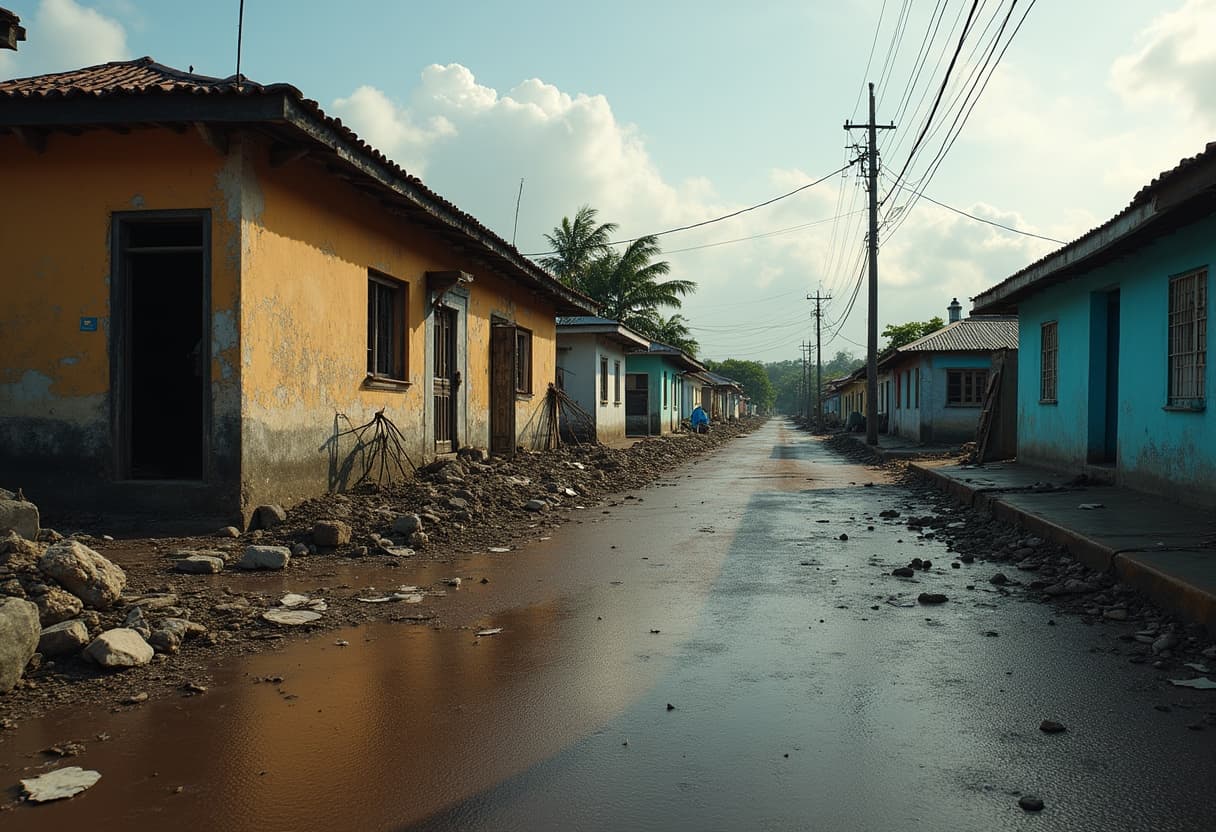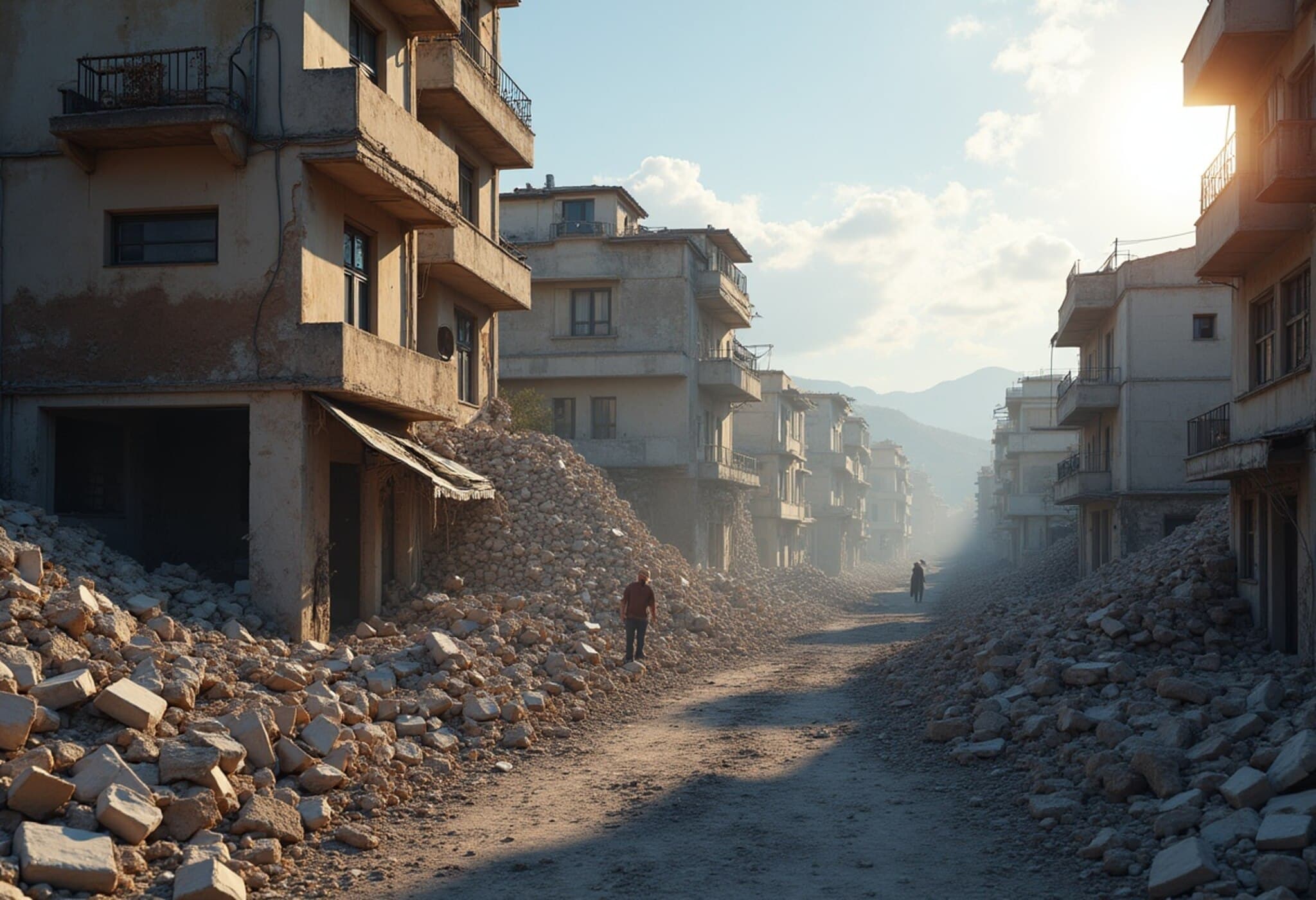Significant 6.1-Magnitude Earthquake Strikes Western Turkey
On the evening of August 10, 2025, western Turkey was jolted by a powerful earthquake measuring 6.1 on the Richter scale, with the tremors reverberating throughout the region and reaching major cities like Istanbul and Izmir. The epicenter was pinpointed in the Sindirgi district of Balikesir province, located approximately 11 kilometers (6.8 miles) below the surface, according to the Disaster and Emergency Management Presidency of Turkey (AFAD).
Wide Reach of Tremors and Aftershocks
The seismic event was felt across multiple provinces, extending as far as Istanbul, nearly 200 kilometers (125 miles) away from the epicenter. Following the initial quake, residents experienced several aftershocks, including a notable magnitude 4.6 tremor. The German Research Centre for Geosciences (GFZ) later reported a slightly adjusted magnitude of 6.19 at a depth of 10 km, underscoring the variability in seismic measurement between agencies.
No Immediate Reports of Casualties, But Some Structural Damage
Despite the intensity of the quake, early assessments from AFAD and Turkish Interior Minister Ali Yerlikaya, who confirmed deployments of emergency response teams, indicated no casualties or widespread destruction. However, local media outlets reported the collapse of one building in Sindirgi, the epicenter of the earthquake. Authorities have advised residents to avoid entering damaged structures as precautionary measures remain in place.
Contextualizing Turkey’s Earthquake Risk
Turkey is situated atop several active fault lines, including the notorious North Anatolian Fault, making it highly susceptible to seismic activity. This recent earthquake is a sobering reminder of the country's vulnerability to such natural disasters. Just two years prior, in 2023, southeastern Turkey and northern Syria bore the brunt of a devastating magnitude 7.8 earthquake, causing over 53,000 deaths in Turkey and nearly 6,000 fatalities in Syria, with widespread structural collapse across 11 Turkish provinces.
Expert Insight: Preparedness and Building Resilience
Considering Turkey's seismic history, experts emphasize the critical importance of enforcing stringent building codes and advancing early warning systems to mitigate the impact of future earthquakes. Urban centers like Istanbul, with dense populations and iconic infrastructure, remain particularly vulnerable. This recent tremor, though not causing major damage, highlights ongoing challenges in disaster preparedness and the urgent need for continuous investment in resilient infrastructure.
Looking Ahead: Monitoring and Public Safety Measures
Emergency teams continue to inspect affected areas, monitoring aftershocks and assessing structural safety. Public communication remains a priority to inform citizens and prevent panic. Authorities have reiterated warnings to avoid compromised buildings until thorough inspections can confirm their stability. Residents in seismic zones are reminded to have emergency kits and action plans in place, as Turkey’s dynamic geology ensures that earthquakes remain a pressing threat.
Editor’s Note
This recent earthquake serves as a vivid illustration of Turkey's ongoing battle with natural seismic hazards. While the lack of immediate casualties is reassuring, it should not induce complacency. Strengthening urban resilience, enhancing public awareness, and investing in scientific monitoring remain crucial to safeguarding lives and property. As Turkey navigates its complex geological reality, the interplay between science, policy, and community preparedness will shape the nation’s ability to withstand future quakes.













